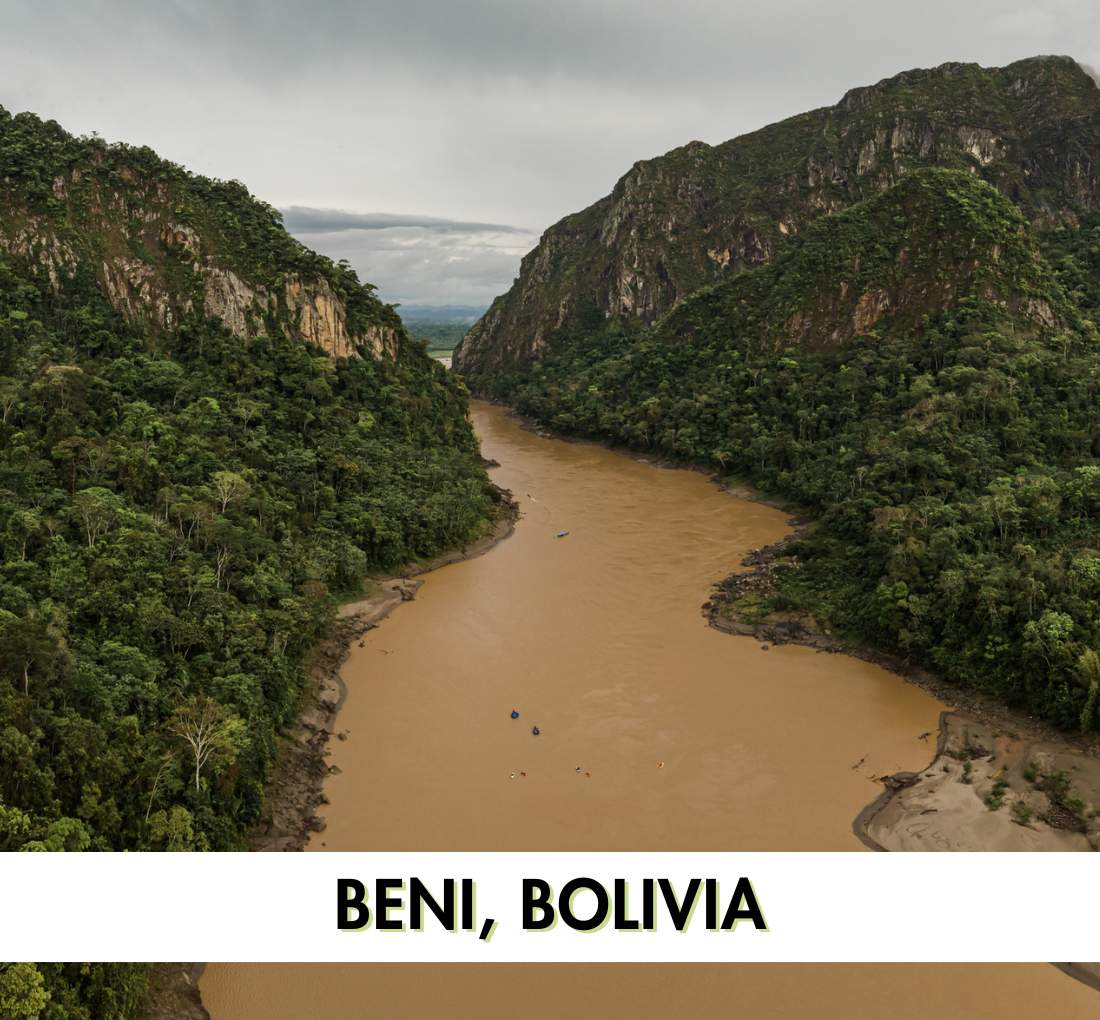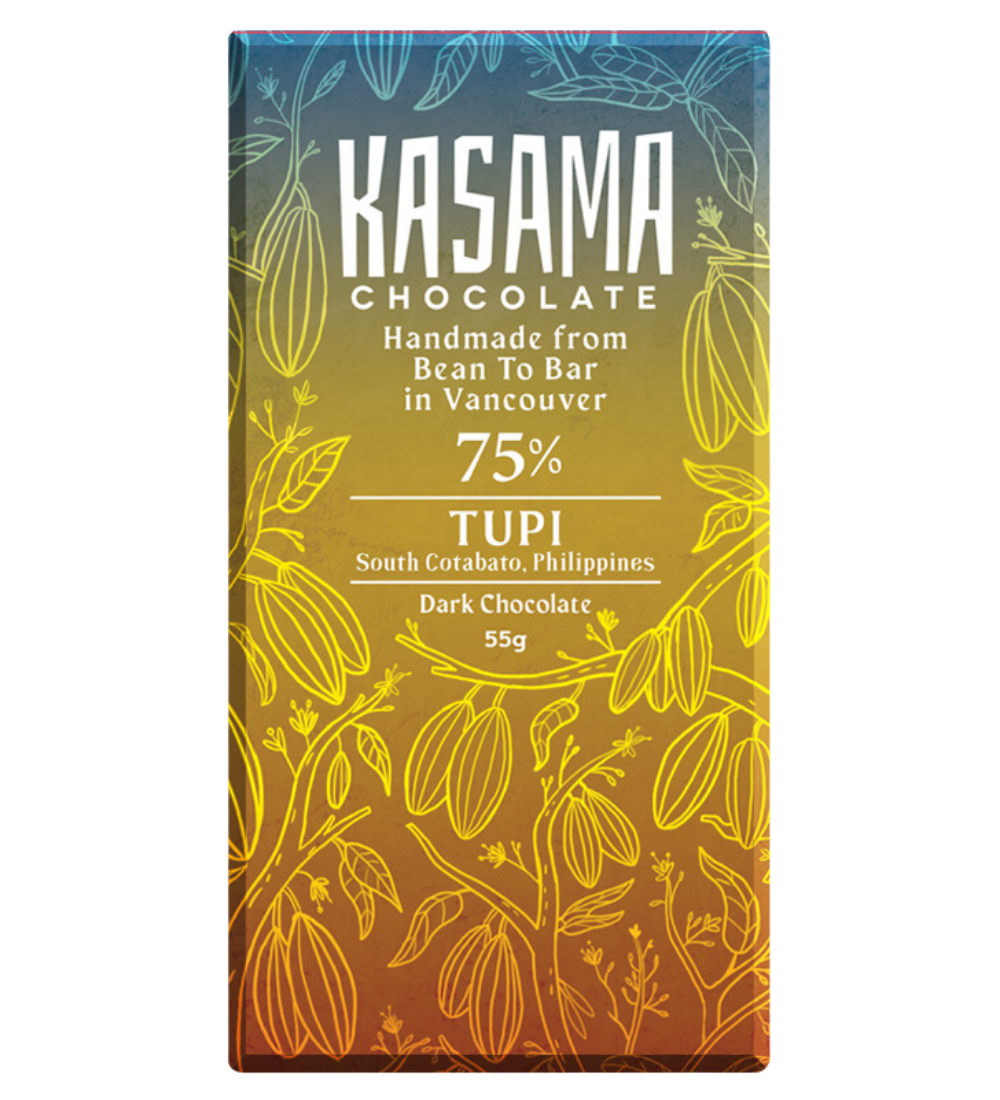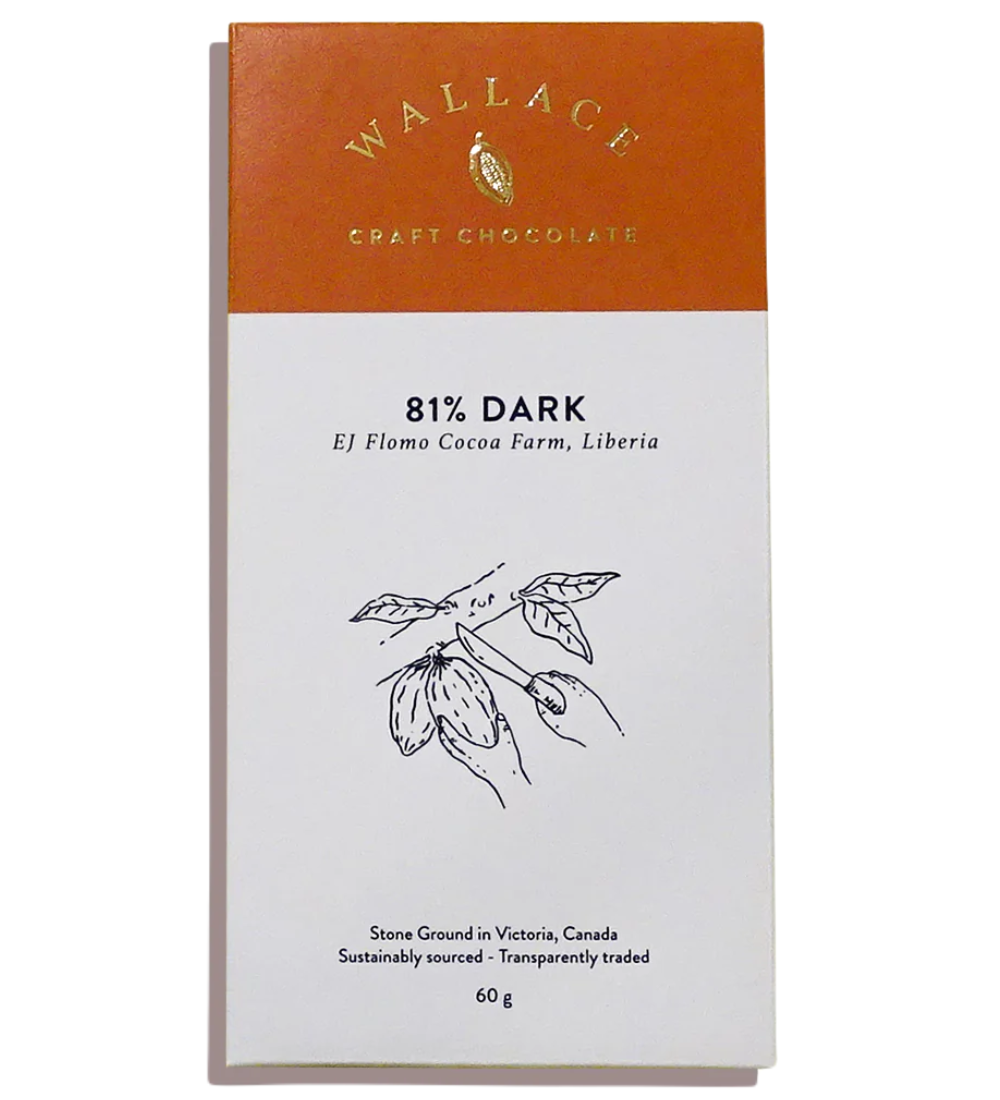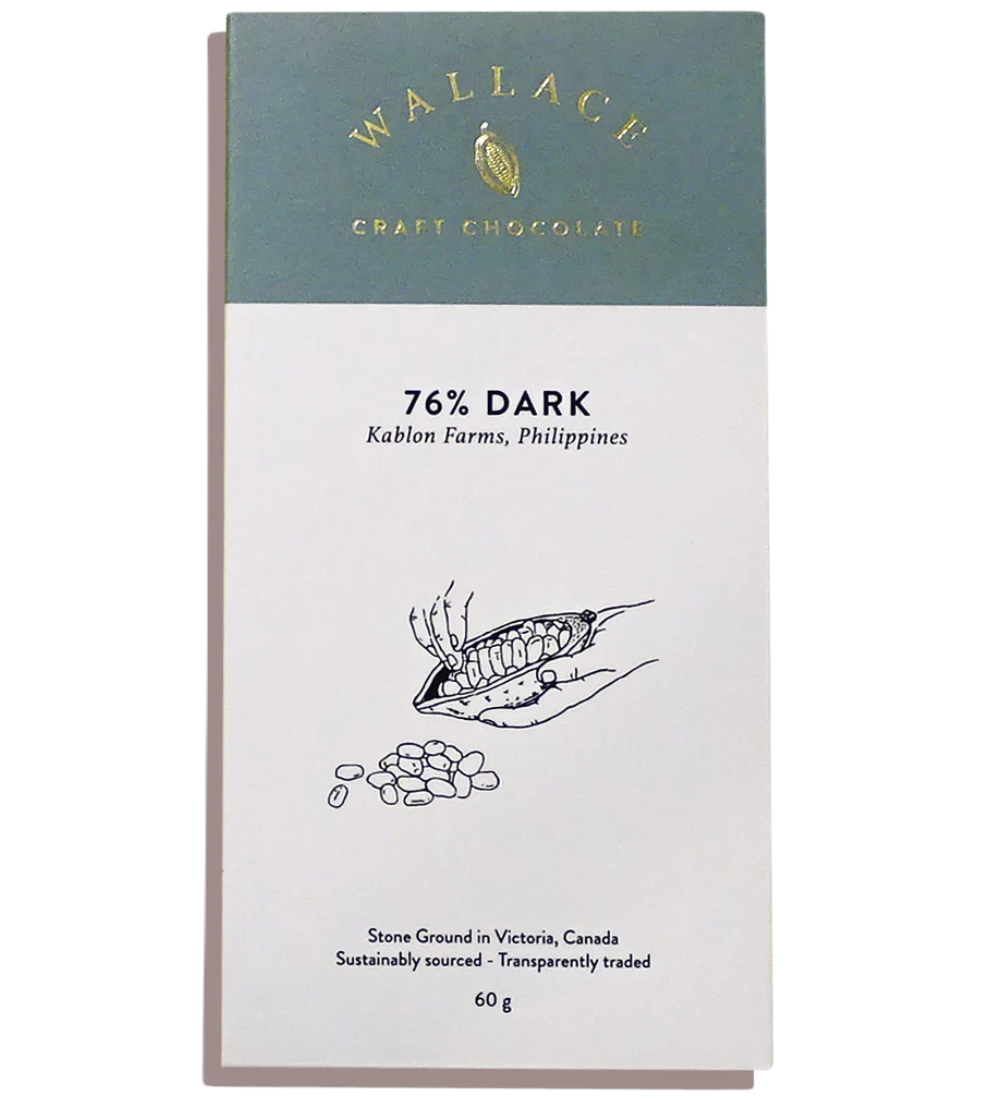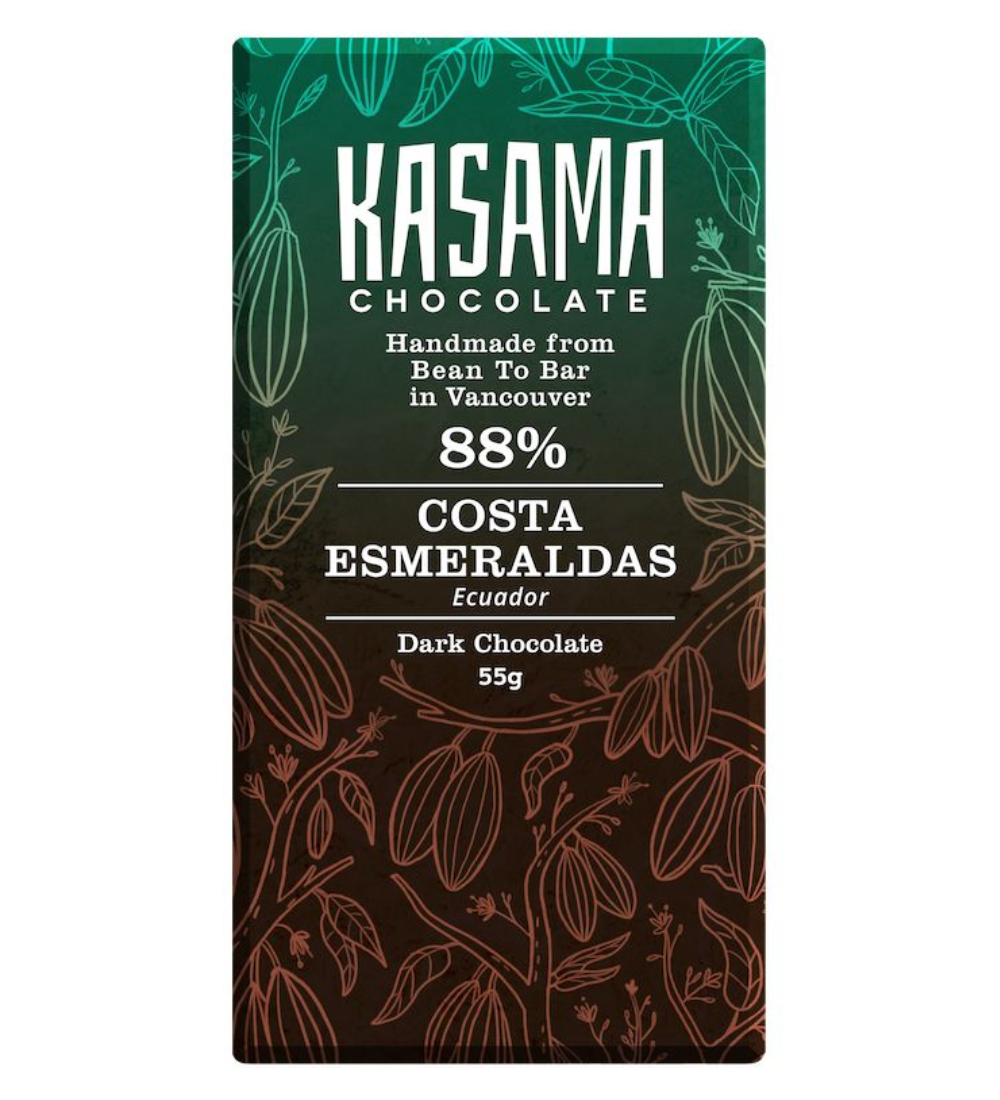Wallace Itenez Wild Harvest Bolivie 73%
Origine du cacao : Bolivie
Pays producteur : Canada
Poids : 60g
Adding product to your cart

Wallace Itenez Wild Harvest Bolivie 73%

Mark Wallace spent years working overseas with cocoa farmers in the West African jungle – a rare experience that sets him apart in the world of chocolate making. Upon returning to Victoria, Canada, he transitioned his deep knowledge of cacao into crafting fine specialty chocolate, all while maintaining his passion for supporting farmers and their communities. All of Mark's cocoa is directly sourced and transparently traded, with most also being organic, heirloom, and chemical input-free. He conducts thorough background research and due diligence on the labour and environmental practices of each supplier. Additionally, his packaging is compostable and recyclable. Another thing I love about Mark's approach is his dedication to showcasing the best of select cocoa-growing areas, highlighting quality over quantity by focusing on one special, intentional bar that's expressive of each region. He takes pride in expressing the flavours of the cocoa origins and shares detailed, often personal, accounts of the farms and growers.
Achetez plus WallaceBeni, a northeastern department of Bolivia, is characterized by its vast, flat terrain and sparse population, ranking as the country's second-largest but also second-least populated department. The region's landscape features large mounds connected by straight earthen causeways, believed to be remnants of ancient, advanced indigenous civilizations that thrived prior to European arrival. A tropical and humid climate fosters warm to hot temperatures year-round. Beni shares its borders with Brazil to the northeast and is predominantly covered by rainforest, pampa, and numerous rivers, all part of the Amazon basin. It is home to a diverse array of wildlife, including 400 unique species of fish. Wild cacao trees grow along the upper reaches of the Beni River where locals traverse the waterways in boats to
harvest fresh pods. In addition to agriculture, timber, and cattle ranching, Beni’s local economy is often linked to illegal narcotics activities, making wild harvesting in the region perilous.
